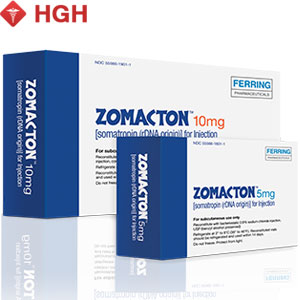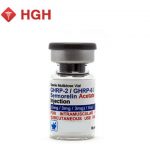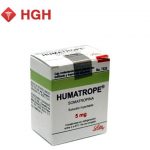
The human body is an extremely complex organism that depends on hormones for much of its functions. Insulin and growth hormone are both important to the body's metabolism. The hormones in the human body don't exist in isolation; nearly all interact with each other either directly or indirectly. Growth hormone and insulin are two of the hormones that are directly related to each other. In the case of these two important hormones, a deficiency in human growth hormone (HGH) can affect your body's sensitivity to insulin. This has important implications for those who have growth hormone deficiency and are trying to lose weight, or who have prediabetes and diabetes.
What is Growth Hormone?
As you might guess from the name, HGH is what causes children and adolescents to grow. Produced by the pituitary gland, the level of this hormone fluctuates throughout life. In adults, it is important because it helps regulate body composition, muscle and bone growth.
It helps balance body fluids and affects sugar and fat metabolism. It may also affect heart function. When deficient in childhood, lack of HGH can lead to growth failure and dwarfism. Growth hormone levels are naturally highest during the growth spurt of puberty and gradually decrease as people age. However, some people can also become deficient in this important hormone in adulthood. In adults, HGH deficiency is more likely to result in decreased muscle mass, problems with bone density and psychological symptoms such as depression, social withdrawal and difficulty remembering things. When HGH decifiency occurs in adulthood, it is not that the body decreases production so much as that less is released into the blood stream.
What is Insulin?
Like HGH, insulin is a hormone, although it is produced by a gland in the abdomen called the pancreas. Insulin regulates your blood sugar by affecting the ability of the body cells to absorb sugar. When you eat – especially carbohydrates – the pancreas releases insulin, which attaches to body cells and signals them to absorb sugar in the bloodstream. It also helps promote storage of sugar in the liver so that it can be released if your blood sugar is too low. Your cells can become less sensitive to insulin (this is known as insulin resistance), which is one of the precursors to diabetes.
Insulin Sensitivity
Insulin sensitivity varies from one person to another. A person who is insulin sensitive will need less insulin to maintain blood sugar levels while someone with insulin resistance will need considerably more insulin to achieve the same blood sugar level. Insulin resistance is typically one of the early signs of diabetes. As the body cells become less sensitive to insulin, the blood sugar rises, which can cause cellular damage. People who have diabetes also have a higher risk of heart disease, high blood pressure, stroke and kidney failure. Most people can increase their insulin sensitivity by exercising more, losing excess body fat and eating more high fiber foods such as fruits, vegetables and whole grains. Assuring adequate sleep and reducing stress can also help to improve insulin sensitivity.
Growth Hormone and Insulin Relationship
A deficiency in growth hormone and insulin resistance tend to go hand in hand. Hypopituitarism occurs when the pituitary gland doesn't produce sufficient HGH. In addition to growth problems, this increases the risk of insulin resistance and heart disease. Scientists aren't sure whether the insulin resistance is the direct effect of hypopituitarism or is specifically the result of low HGH. What is known, however, is that administration of HGH does have an effect on fasting blood glucose and insulin sensitivity. High blood sugars can suppress HGH secretion. High glycemic carbs – primarily refined carbohydrates and sugars – can cause a spike in blood sugar and suppression of HGH secretion. However, low insulin levels can prevent HGH from functioning properly.
HGH Effects in the Body
Increased levels of HGH can also increase muscle size and strength. This is why bodybuilders sometimes think they can use HGH to become more muscular. However, the kinds of hormones available over the counter are ineffective and in some cases dangerous. Hormone therapy should be used only under a doctor's supervision and with prescription medications. You should only use HGH that has been prescribed by your doctor.
HGH drugs have been counterfeited and may be adulterated or not contain adequate amounts of the medication. HGH also helps mobilize body fat for fuel, which can promote weight loss. It is important to recognize that HGH is not a weight loss aid and should be used only for clinically documented growth hormone deficiency. Chronically high insulin levels can also increase body fat.
As you can see, growth hormone deficiency and insulin sensitivity cannot be regarded in isolation but must be considered as interacting factors in your overall health. If you need HGH supplementation because of low growth hormone levels, talk to your doctor about prescription HGH such as that offered by Wellness MGT. Growth hormone and insulin levels truly are interrelated and both must be considered. This is a condition that requires medical management since HGH affects so many important biological processes in the body.




